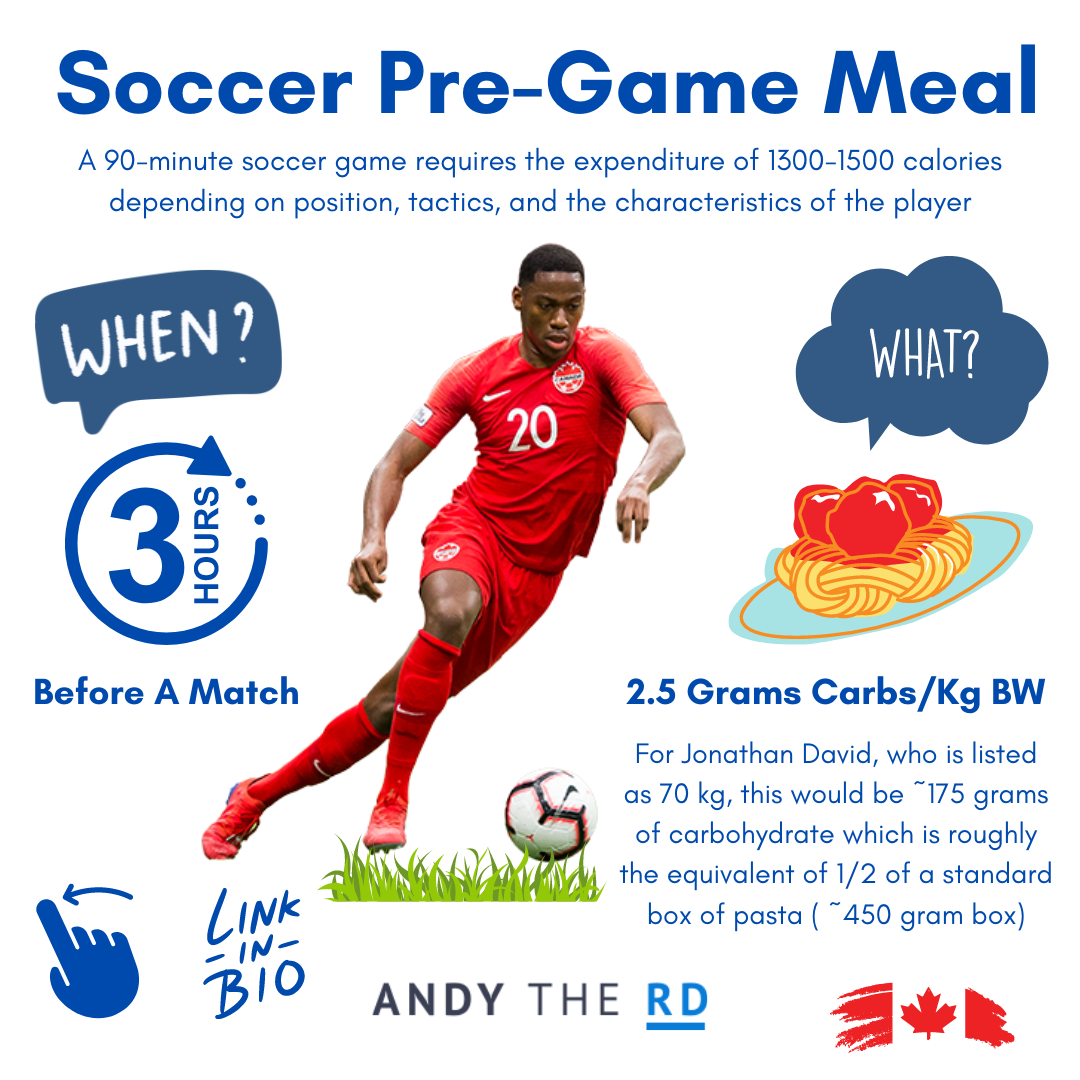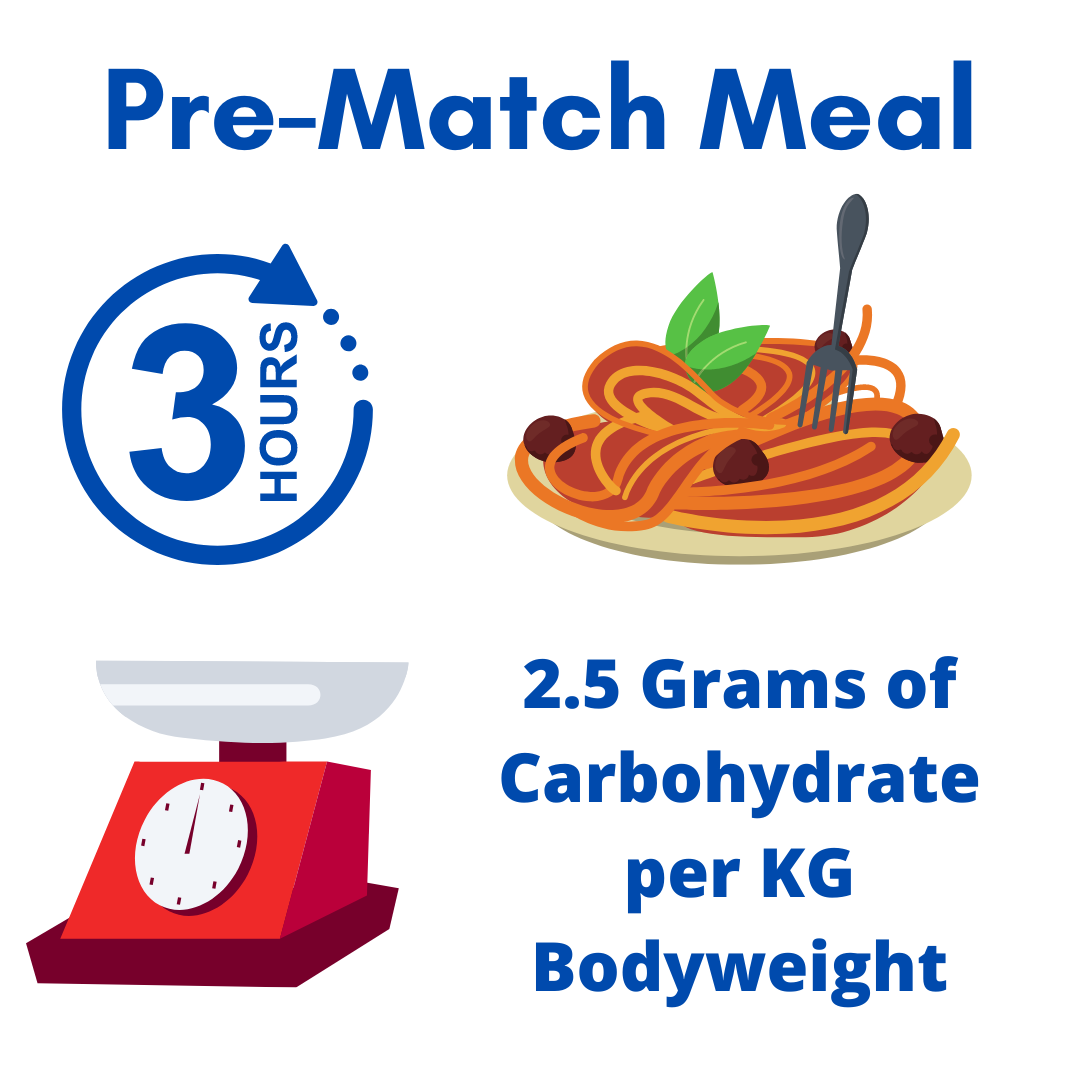The concept of the ideal pre-game meal comes up often with my athletic clients because there is, rightfully so, a sense of enhanced relevance that accompanies what one consumes right before a match or intense training session.
It is obviously scientifically relevant as well, with meaningful implications for performances.
So what should you eat before a soccer game?
Let’s find out.
The Ideal Pre-Match Meal?
“The ingestion of sufficient quantities of carbohydrate prior to a match
is likely the most important strategy for football [soccer] performance.”
Ian Rollo, Senior Scientist at Gatorade Sports Science Institute 2014
So what does this really mean?
Well, the timing part is obvious but let’s break it down the quantity aspect using Lionel Messi, listed on as 67kg, as an example.
Based on these numbers, suggested by a 2014 Gatorade Sports Science Institute report, Messi’s ideal pre-match meal would consist of 67 kg x 2.5 g carbs/kg weight = 167.5 grams of carbohydrate.
This may seem like a significant amount of carbohydrates to consume in a single meal, because it is relatively speaking but it is also what the best available scientific evidence suggests to be an optimal amount to enhance muscle and liver carbohydrate stores for a soccer match.
Which, by the way, expends between 1300-1500 calories over a 90 minute period depending on a player’s position, work rates, tactics and other individual characteristics.
What Might This Look Like?
Example #1 – Oatmeal with fruit
2 cups dry oatmeal – 100 grams carbohydrate
2 tbsp maple syrup – 25 grams carbohydrate
1 large banana – 30 grams carbohydrate
Example #2 – Pasta with tomato sauce
~ 150 grams uncooked pasta ( about 1/3 of a standard 450 gram box) – 120 grams carbohydrate
1/2 jar tomato sauce – 25 grams carbohydrate

Carbs = Fuel For Soccer
Sports science as it relates to nutrition is obviously highly individualized, but sufficed to say that carbohydrate is a soccer players primary fuel.
Activities like soccer, which require repeated and prolonged bouts of sprints/intensity, utilize a great deal of muscle glycogen (carbohydrate stored in the muscles) and so ensuring that these stores are topped up (both in muscle, and liver which is another storage site) is a fundamental aspect of good performance.
The consequences of inadequate fueling may be most likely to manifest at the end of a match where fatigue and glycogen depletion are most likely to set in.
Consuming carbohydrate (ie; sports drinks) during a match is another important and misunderstood fueling concept which is mentioned in the Gatorade Institute report I referenced today.
Today’s post is a very basic introduction into the scientific principles that a professional soccer player might apply in determining what to eat on a match day.
I’ve oversimplified things and there are obviously a number of individual characteristics at play, but my hope is you’ve found today’s post insightful.
If you are into this type of stuff, definitely check out my previous post on how much soccer pro player’s eat on a daily basis and how it differs on match vs training days, linked below.
Need Help With Your Soccer Nutrition?
Whether you are a competitive soccer player or the parent/caregiver of one – there are basic nutrition principles both from the performance and overall health perspective that you must know in order to optimize game day output, recovery and general well being on and off the field.
The insights provided in today’s post are scientific and highly valuable, but it doesn’t mean they are the exact right approach for everyone.
A massive of individual variation and customization is normal in all types of nutrition planning, especially for sports like soccer.
If you’re looking for fully personalized sports nutrition guidance that hits all of these areas, I can help – reach out today to set up a discovery call.
Until next time,
Andy De Santis RD MPH
Bonus – How Much Do Soccer Pros Eat Daily?
Going beyond the pre-game meal, this article looks at a soccer pros food intake on heavy training/match days vs light or off days.
Until next time,
Andy De Santis RD MPH




